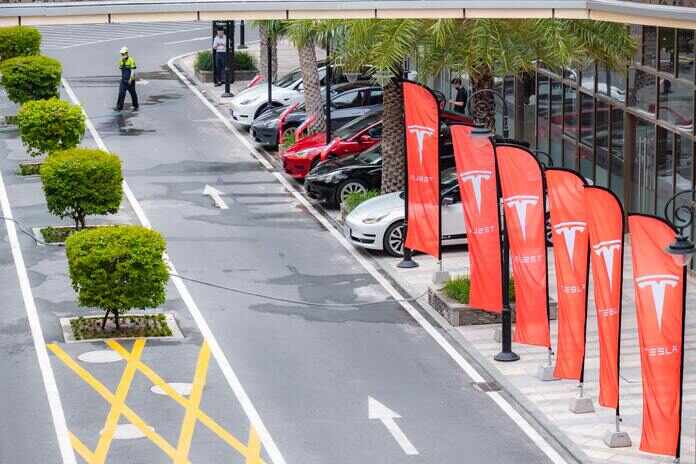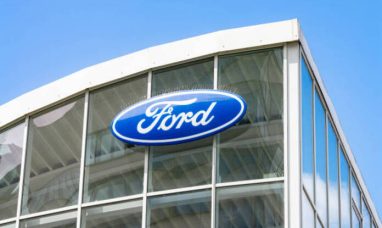Tesla Stock (NASDAQ:TSLA)
Compared to its worldwide competitors, Tesla (NASDAQ:TSLA) Inc. generates more profits per car sold. CEO Elon Musk has initiated a pricing war for electric vehicles, using his company’s superior profitability as a weapon.
According to Reuters’ examination of industry statistics, Tesla stock, which was previously one of the auto industry’s greatest money losses, has developed a commanding lead over most major competitors in profit per car over the last year.
According to a Reuters analysis, Tesla’s gross profit per vehicle in the third quarter of 2022 was $15,653, which was more than twice as much as the comparable figure at Volkswagen AG (OTC:VWAGY), four times as much as the comparable figure at Toyota Motor (NYSE:TM) Corp, and five times as much as Ford Motor (NYSE:F).
Like several of its competitors this year, Tesla has steadily increased the cost of its most popular models, including the Model Y SUV. The car sector was able to concentrate on higher-margin models and record solid profits despite a decline in sales numbers due to semiconductor and other material shortages.
The profit-over-volume tactics established manufacturers like GM have followed since the 2008 financial crisis and doubled down during the epidemic are being challenged by Tesla’s choice to reverse direction and use its production-cost advantage on price decreases.
Tesla stock has spent extensively on innovative manufacturing techniques, including using big castings instead of tiny metal components, to keep production costs down. To achieve economies of scale, Tesla centralized its battery production and other areas of its supply chain, and it standardized its car designs.
The car industry has a long history of manufacturing cost advantages to support price decreases.
In the early 20th century, costs were lowered while manufacturing of the Model T was ramping up, thanks to Henry Ford’s ingenious mass production technique. Toyota’s lean manufacturing approach allowed the company to deliver features at pricing that Detroit manufacturers had a hard time matching in the 1980s and 1990s. In response to Tesla’s competition, Toyota is rethinking its approach.
The demand for EVs will increase faster than the market average in the US and internationally in 2022. That gave manufacturers the confidence to raise costs for EVs. In 2022, Ford will add a 40 percent premium to the price of its electrified F-150 truck.
Increasing Capacity
However, experts warn that the global EV industry may soon have too much supply and insufficient demand.
Expert forecaster Warren Browne predicts that North America’s annual demand for electric cars will reach 2.80 million units by 2026. He predicted that North American EV plants will have the ability to assemble over 4.5 million cars, with an overall capacity utilization of slightly under 60%.
Due to the elimination of central government subsidies, competition in the world’s biggest EV market has heated up in China.
Bill Russo, CEO of Shanghai-based industry consultant Automobility, has warned that “Tesla has chosen the nuclear option to push the weaker, narrow margin companies off the table” in China. The saying goes, “Big pie, fewer pieces, more for those left to eat.”
Companies like Xpeng (NYSE:XPEV) Inc out of China profited from Tesla’s pricing increases. As a result, Xpeng slashes pricing in China but with less room to maneuver financially than Tesla. Reuters’ examination of corporate records revealed that in the third quarter, Xpeng’s gross profit was $4,565, while its net loss per car was $11,735.
Xpeng has indicated that the company’s goal is to make “smart automobiles” more accessible to the general public by lowering their prices.
On Thursday, Vinfast, a Vietnamese electric vehicle company, said it will use price discounts to compete with Tesla.
With Beijing’s elimination of EV subsidies, the leading Chinese EV manufacturer, BYD Co (OTC:BYDDF) Ltd, has announced price rises from January 1. Despite Tesla’s recent price decreases in China, BYD has not yet retaliated. The gross margins of $5,456 per car that BYD enjoys offer it more space to maneuver in a pricing battle than Volkswagen, Toyota, or General Motors.
Featured Image: Pexels @ Makara Heng
















